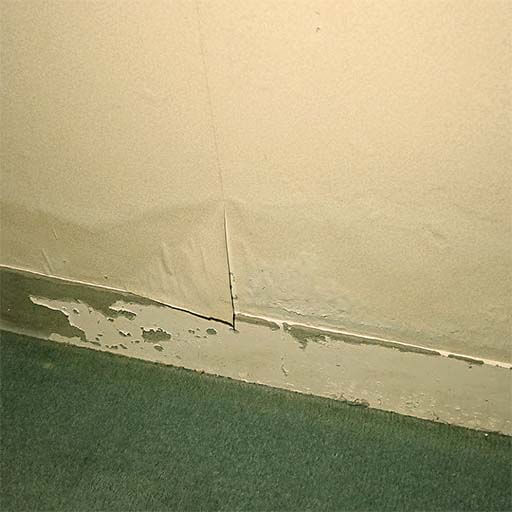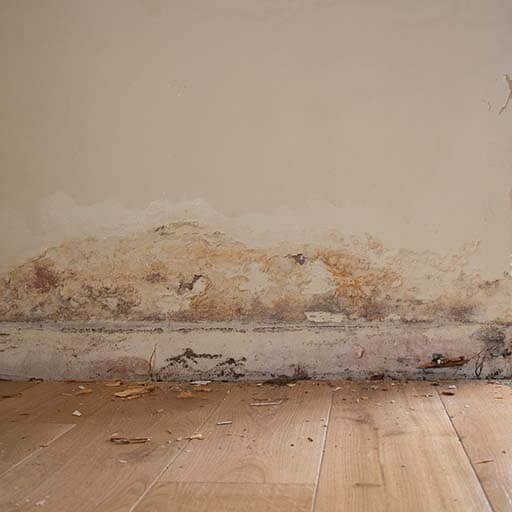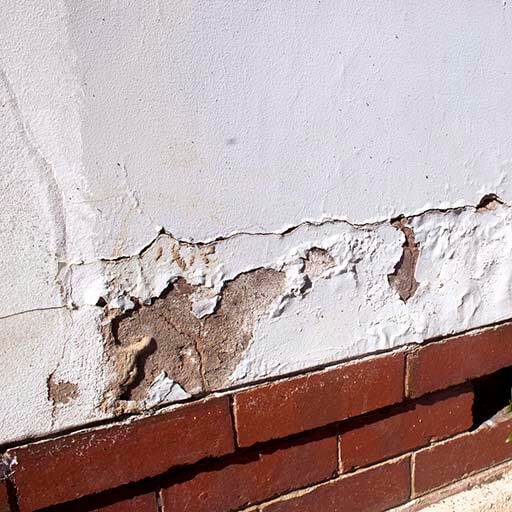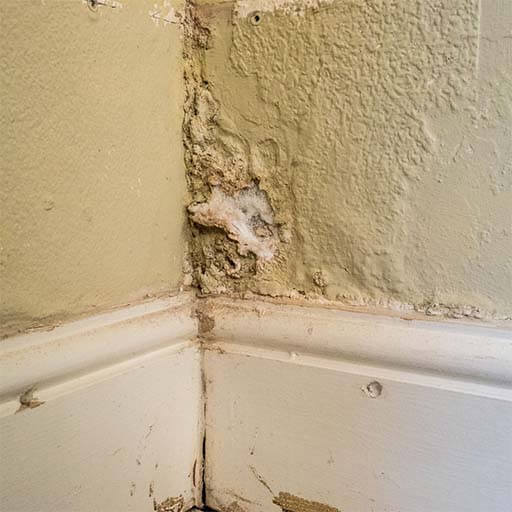Condensation damp
Condensation damp is by far the most commonly found type and, on the face of it, the least troublesome. However, aside from the obvious aeastic evidence, perpetual condensation can be a signal of more serious underlying problems and a symptom of other types of damp problem. To first get to grips with condensation, it’s good to understand what it actually is.
The air all around us both inside and outside the house contains moisture, it’s a natural part of the way our planet works. How much moisture is in the air depends on a number of factors including the prevailing weather and inside the home, whether we’re having a shower, boiling a kettle or cooking. Usually this moisture is invisible to us but at something called the dew point, the moisture transforms from its gaseous state to that of a liquid and that liquid has to be deposited somewhere as the air molecules can no longer support the additional weight, in other words, the air becomes saturated.
In simple terms, the air gives up its moisture content into droplets when the outside temperature drops and meets the warmer air within the home and that’s most evident in single glazed and poorly double glazed windows because glass is a very good conductor of heat but especially in older properties,
Damp proofing - Condensation damp examples




If you believe you have a case of rising damp you can contact us to book a FREE, no obligation damp survey for your property using the adjacent form. Please note, this is only available to property owners living in Kent including CT and ME postcode areas.
What happens when you book a survey?
- We will contact you to arrange a mutually convenient date & time for our visit
- We will visually inspect damp areas
- We will take detailed measurements using our specialised equipment
- We will inspect the property inside and out for evidence of the damp source and cause
- We will produce a report detailing our findings
- We will include a detailed, no obligation quotation for remedial work


